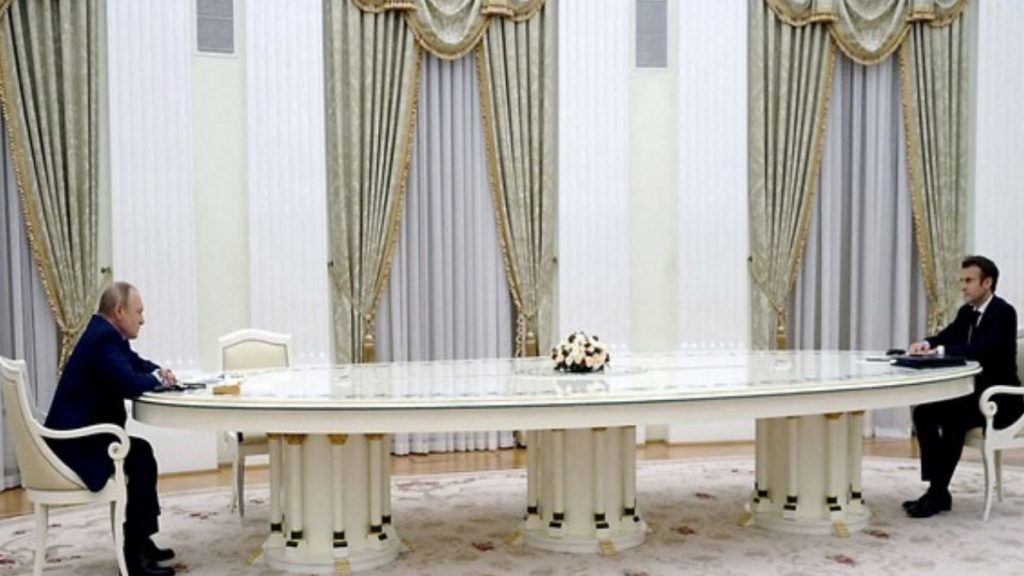Moscow: Russian President Vladimir Putin held a telephone conversation with French President Emmanuel Macron, marking their first direct contact since September 2022, RT reported, citing the Kremlin press service.
The call focused on the situation in the Middle East and the ongoing Ukraine conflict. According to RT, Putin told Macron that the Ukraine conflict was “a direct consequence of the policies pursued by Western states, which for many years ignored Russia’s security interests,” and had created an “anti-Russian bridgehead” in Ukraine. He reiterated that any settlement must “be comprehensive and long-term, address the root causes of the Ukrainian crisis and be based on new territorial realities.”
The leaders also discussed the recent escalation between Israel and Iran. As per the Kremlin’s statement, both agreed that diplomacy remains the only viable path forward and pledged to stay in touch for the “possible coordination of positions,” RT reported.
The two heads of state also acknowledged a “special responsibility” to preserve “peace and security” and to uphold the global nuclear non-proliferation regime. “In this regard, the importance of respecting Tehran’s legitimate right to develop peaceful nuclear energy and continuing to fulfil its obligations under the Treaty on the Non-Proliferation of Nuclear Weapons, including cooperation with the IAEA, was emphasised,” the Kremlin noted, according to RT.
France has been a key supporter of Kyiv in its conflict with Moscow, providing over EUR3.7 billion ($4.1 billion) in military aid since February 2022, according to data from the Kiel Institute’s aid tracker. While French President Macron had previously considered deploying troops to Ukraine, the idea did not materialise. Paris indicated that troops might be sent post-hostilities as a deterrent, a move firmly opposed by Moscow, warning it could trigger a direct conflict between Russia and NATO.
In recent statements, however, Macron has appeared to shift his position. In May, he acknowledged that France had done “the maximum we could” and that it could no longer supply Ukraine with additional weapons. Last week, he suggested that NATO’s European members should reconsider “endlessly” arming themselves and proposed reopening dialogue with Moscow as part of broader European security talks linked to a possible Ukraine peace settlement.

